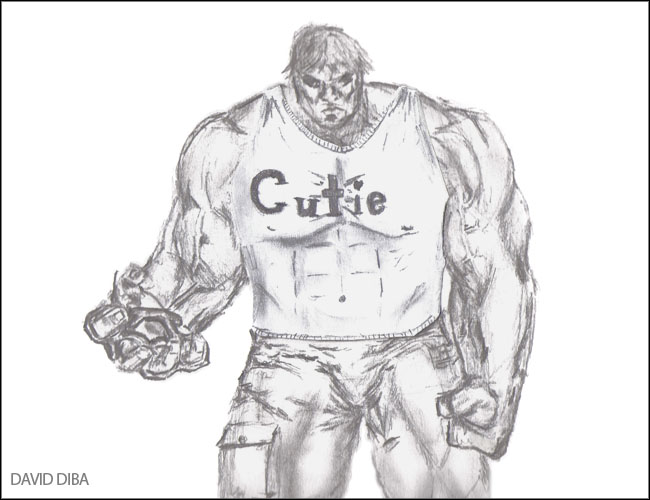
When athletes get on the court, put their toes on the starting line, or dive into the pool, they become different people. They leave normal life and assume new identities. When they’re on a team, people become bigger than themselves—they become teammates. Some even leave their names behind.
Nicknames aren’t just a fun way of joking around; they’re proof that as a team, everyone is a different person. Sophomore David Leong says, “My nickname on the water polo team last year was Big D. Kyle Kim [an Aragon graduate] gave me the name. He told me ‘Hey David, you’re so big on Campus! You’re Big Dave—Big D!’”
Many of the stories people tell about how they obtained their nicknames are just as interesting as the nicknames themselves.
“My nickname is Tofu; I got it because Tofu sounds a lot like my last name, Tolfa,” says sophomore Nick Tolfa.
“I got my nickname, Jer-Bear, in middle school,” says sophomore Jerry Hong. “A lot of people just started calling me it, and [it really just stuck.] [Everyone] calls me it now.”
Sophomore Connor Kenny also shares the origins of his nickname. “My nickname is Corndog. My name is Connor, which I guess sounds like corn, and that became Corndog,” he says.
While nicknames may begin as jokes, many athletes end up cherishing them as a connection to their team.
“The people who use my nickname the most are the people I play sports with. Mostly it’s other Ultimate Frisbee players and my football team,” says Tolfa. “Getting a nickname on a sports team brings you closer together as friends and as teammates, and it gives you a connection that you have only with those people. It leads to better teamwork.”
Nicknames aren’t just a great way to build up existing friendships: they’re a great way to start new ones.
“When I play frisbee with people I don’t know, I’ll say ‘Hi, I’m Tofu.’” Says Tolfa. “Using nicknames makes us feel like we know each other better.”
Many unorthodox sports cherish nicknames as a part of their wacky gameplay. “Frisbee is a crazy sport, and nobody uses their real names. [You’re really a character] when you’re on the field,” says Tolfa.
Nicknames are so effective in team-building that many teams have started actively using nicknames to bring their teams closer together. For example, the water polo team sweatshirts are customized with each of the team members’ nicknames.
“One thing we definitely didn’t want to have on the sweatshirts was our normal names—we wanted to deviate from the norm,” says Leong. “We wanted to show that we’re a team.”
For some, nicknames become so prevalent that they begin using them in everyday life.
“My nickname started out as a joke, but now it’s more of [an actual title],” says Tolfa. “I’ve even used it to introduce myself a couple of times.”
“A lot of people use my nickname, [not just my teammates],” says Hong. “The people that really know me all call me Jer-Bear.”
Nicknames may start on the field, but many find their way into the halls of Aragon.
“I was really excited to hear my new nickname, D-Grande, used in class a couple of times. I was like, ‘Yes! People know me!”’ says Leong.
Leong brings up an interesting point— that nicknames are a testament to how well people know each other.
“The people who use my nickname are the people I know personally,” says Kenny. “I feel [closer] to the people who call me Corndog,” says Kenny.
“[Even if someone’s just using your nickname because they’ve heard other people using it], it still makes you feel more familiar with them,” says sophomore Matt Lanthier.
In the same way nicknames can be viewed as strengthening friendships, nicknames can be seen as enhancing a team’s ability. When the camaraderie among teammates is high, so is the level of play.
“It really shows everyone that we’re a team. We gave each other these names, and we use them for each other. We’re like a family,” says Leong.
In the same way that a family names its children, a team names them something new. It rechristens them as teammates.
“Kyle gave me my nickname. He’s kinda like my dad now,” says Leong.



